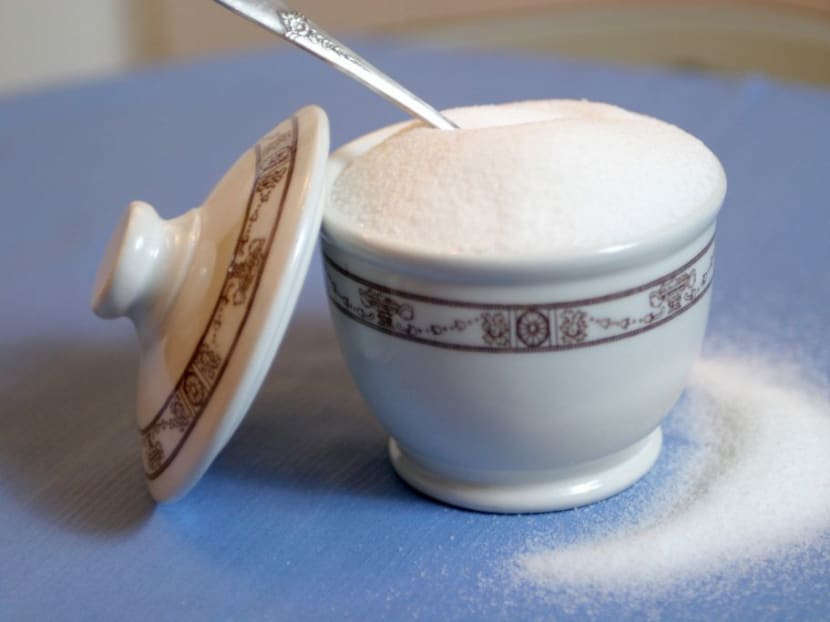How sugar is taking centre stage in Indonesian presidential race
JAKARTA — Indonesian President Joko Widodo, who’s seeking another five-year term in 2019, has opened up the floodgates to sugar imports to stabilise domestic prices. It worked, but now he’s facing the heat from local farmers, a key voting bloc.

Indonesia’s sugar imports have almost doubled in the past decade as economic growth has powered expanding food consumption in the world’s fourth most-populous nation.
JAKARTA — Indonesian President Joko Widodo, who’s seeking another five-year term in 2019, has opened up the floodgates to sugar imports to stabilise domestic prices. It worked, but now he’s facing the heat from local farmers, a key voting bloc.
With an election looming in April, Indonesia’s economy has expanded at a rate of about 5 per cent under Mr Widodo, or Jokowi, as he’s commonly known.
While the government has failed to hit its 7 per cent target, the nation’s unemployment rate is about 5.3 per cent, after falling to a two-decade low in February. The president has also been praised for a massive infrastructure programme and reform agenda that’s helped secure sovereign rating upgrades and much-needed investment.
Yet Indonesian politics are complex, and Mr Widodo is engaged in a delicate balancing act. He’s launched an array of policies to keep the prices of everyday staples like sugar and rice in check and improve upon the stagnating wage growth that’s weighed on Indonesia’s expanding middle class.
Yet by doing so he has drawn the wrath of the country’s powerful agricultural lobby that favours Mr Prabowo Subianto, an Indonesian businessman and ex-special forces commander who leads the opposition Gerindra party.
“Jokowi must ensure that commodity prices are affordable for lower-income consumers,” said Mr Achmad Sukarsono, a Singapore-based analyst at Control Risks. “At the same time, Jokowi must show he cares about the plight of local farmers whose products fail to compete with these imported goods.”
SUGAR FARMERS
Hundreds of cane planters rallied in front of the presidential palace in Jakarta on Oct 16 - 17 and called on the government to stop imports and ensure refined sugar for industry use is not sold in the retail market. The protesters also seek the dismissal of Trade Minister Enggartiasto Lukita.
Domestic farmers are facing an estimated 2 trillion rupiah (S$187 million) of losses as sugar prices have tumbled 6 per cent over the last year, according to the Indonesia Sugarcane Farmers Association.
On top of that, a government plan for state food company Bulog to buy local sugar to support domestic farming interests hasn’t worked as planned, the industry group said.
“Our livelihood depends on sugar,” Mr Achmad, a 70-year old farmer from Mojokerto, East Java province, said in an interview in Jakarta. “I have forty workers, some are old women. How can they live if I don’t grow cane?” He’s making ends meet by leasing part of his land and seeking loans.
Mr Achmad, who uses only one name, said he had to sell the sugar at the government’s ceiling price of 9,700 rupiah per kg, which is below the cost of production of 10,500 rupiah.
Farmers who are managed by private mills get an even lower price of 8,300 rupiah per kg for their sweeteners, said Mr Soemitro Samadikoen, chairman of the sugarcane farmers association.
Indonesia’s sugar imports have almost doubled in the past decade as economic growth has powered expanding food consumption in the world’s fourth most-populous nation.
Indonesia overtook China as the biggest sugar importer in the 2016/2017 season and is the biggest consumer of palm oil and the second-largest buyer of wheat.
Imports are regulated by government permits. Sweeteners for the food industry are supplied by refiners that process imported raw sugar into refined white sugar. Household consumption of sugar is supplied by other mills that crush domestic cane and through government imports.
Indonesia’s total sugar imports may drop about 4 per cent in the year through April 2019 to 4.25 million metric tons from a year ago, according to the United States Department of Agriculture.
Still, purchases of the raw variety used by households may rise 22 per cent in 2018 to 1.1 million tons from a year ago, Mr Oke Nurwan, Director General of Foreign Trade, said in text message. The country normally imports sugar from Thailand.
While Mr Widodo’s policy is opposed by farmers, it has successfully controlled prices.
Local sugar prices have fallen about 5 per cent to 12,050 rupiah per kg this year, according to data from the central bank-run Centre for Information of Strategic Food Price. The consumer price index dropped to the lowest level in two years in September, Central Statistics Agency’s data shows.
The opposition Gerindra party has quickly made a political issue out of the increase in imported sugar by questioning the seriousness of government efforts to improve the welfare of farmers and achieve food self-sufficiency, according to a post on its Facebook page. Indonesia has also imported other food products, ranging from rice to soybeans and salt.
Bulog which had a mandate in July to absorb 600,000 tons of local sugar, has since bought only one-third of that target, Procurement Director Bachtiar said Oct 24.
The company may only buy 500,000 tons through April 2019. It has about 400,000 tons stockpiled as of last month, he said.
While purchases have slowed, Bulog will continue to buy local sugar, MR Bachtiar said. There are about 100,000 tons of white sugar owned by farmers in warehouses because Bulog doesn’t want to buy them, said the farmers association’s Samadikoen.
Poor quality is the most likely reason why purchases by Bulog were still low, said Mr Hizkia Respatiadi, head of research at Centre for Indonesian Policy Studies.
“If Bulog did not even want to buy them, even with their below-market price, then it’s no wonder if the commercial industry refused to buy them as well.” BLOOMBERG






